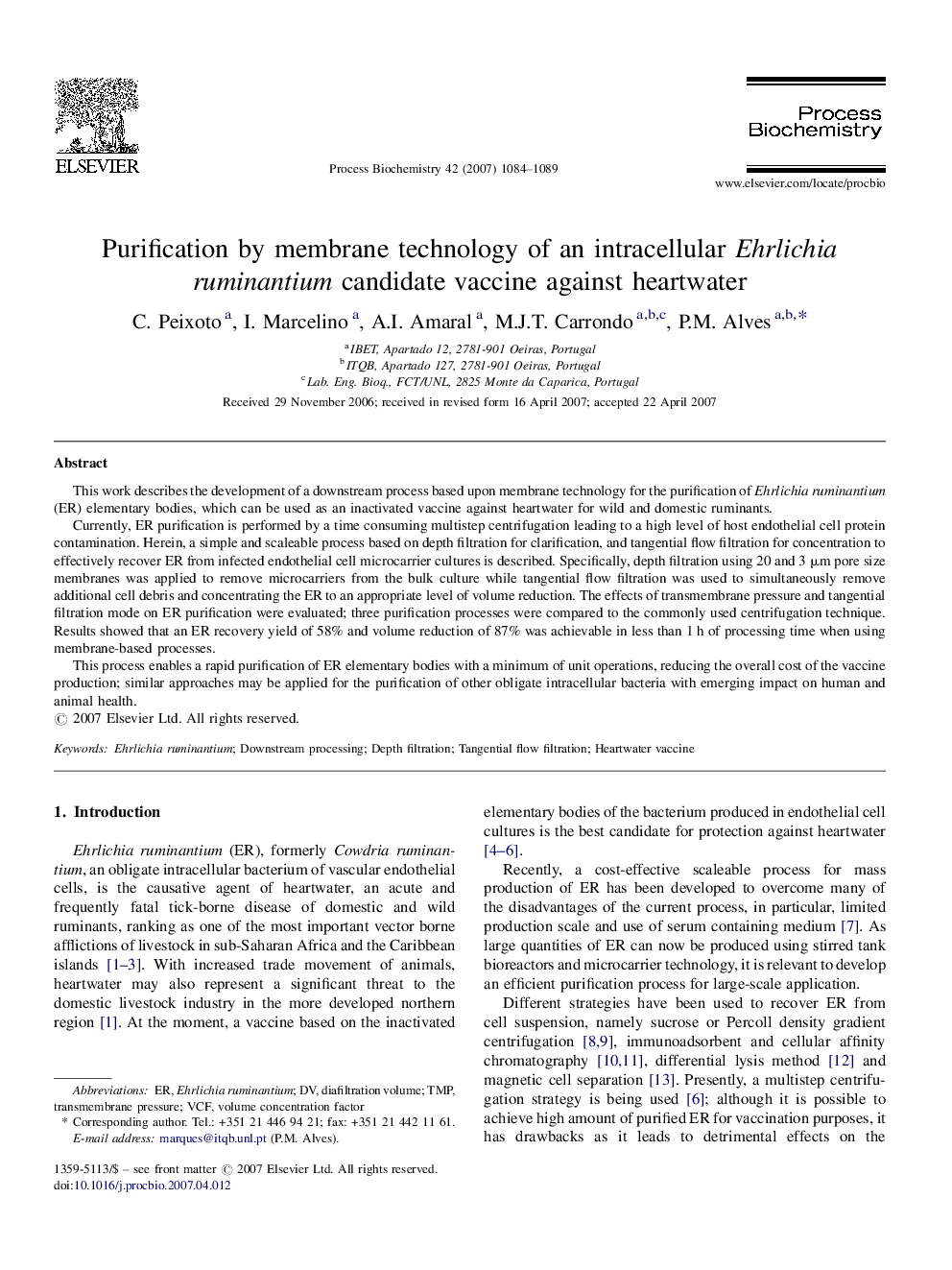| Article ID | Journal | Published Year | Pages | File Type |
|---|---|---|---|---|
| 35863 | Process Biochemistry | 2007 | 6 Pages |
This work describes the development of a downstream process based upon membrane technology for the purification of Ehrlichia ruminantium (ER) elementary bodies, which can be used as an inactivated vaccine against heartwater for wild and domestic ruminants.Currently, ER purification is performed by a time consuming multistep centrifugation leading to a high level of host endothelial cell protein contamination. Herein, a simple and scaleable process based on depth filtration for clarification, and tangential flow filtration for concentration to effectively recover ER from infected endothelial cell microcarrier cultures is described. Specifically, depth filtration using 20 and 3 μm pore size membranes was applied to remove microcarriers from the bulk culture while tangential flow filtration was used to simultaneously remove additional cell debris and concentrating the ER to an appropriate level of volume reduction. The effects of transmembrane pressure and tangential filtration mode on ER purification were evaluated; three purification processes were compared to the commonly used centrifugation technique. Results showed that an ER recovery yield of 58% and volume reduction of 87% was achievable in less than 1 h of processing time when using membrane-based processes.This process enables a rapid purification of ER elementary bodies with a minimum of unit operations, reducing the overall cost of the vaccine production; similar approaches may be applied for the purification of other obligate intracellular bacteria with emerging impact on human and animal health.
